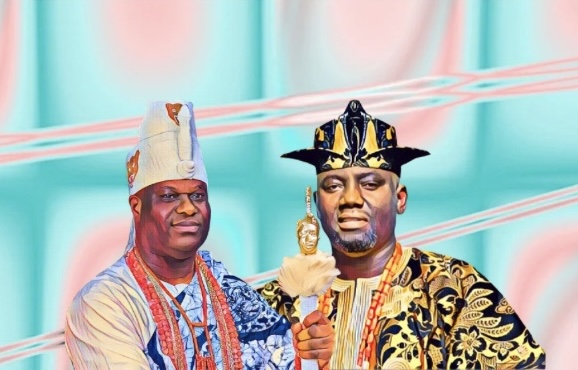Key Points
-
Alaafin ultimatum labeled an empty threat from a dead empire.
-
Ooni’s camp insists Ile-Ife remains Yoruba’s ancestral authority.
-
Yoruba monarchy rivalry reflects fading but symbolic royal influence.
After a representative for the Ooni of Ife called an ultimatum from the Alaafin of Oyo “an empty threat from a dead empire,” a new round of palace intrigue broke out between two of Yoruba land’s most important traditional institutions.
The rivalry between Yoruba monarchs, who have long fought for symbolic supremacy in Nigeria’s cultural hierarchy, is highlighted by the statement, which had an impact on the traditional and political classes.
Even though the Alaafin was once one of West Africa’s most powerful monarchs, his institution no longer has the same political clout today.
The Alaafin ultimatum is regarded as an antiquated assertion
According to a report by Vanguard news, the Alaafin’s statement was rejected by the Ooni spokesperson, who claimed it lacked authority and relevance in the current Yoruba sociopolitical structure. He claimed that these demands were from “an era of dominance that no longer exists.”
The rebuke draws attention to a recurrent struggle for recognition between royal courts in Nigeria, where traditional rulers are increasingly relegated to ceremonial rather than decision-making roles.
According to observers, the Alaafin’s attempts to establish their dominance run the risk of offending younger generations, who view these public disputes as diversion from more important local concerns like unemployment, insecurity, and cultural preservation.
Ooni’s camp emphasizes the importance of historical leadership
Because Ile-Ife is the Yoruba people’s ancestral home, the Ooni’s aides maintain that their monarch symbolizes the birthplace of Yoruba civilization.
They contend that centuries of history that establish Ife as the cultural and spiritual foundation of the Yoruba nation cannot be overridden by the Alaafin’s ultimatum.
According to analysts, this rhetorical contest is as much about politics as it is about prestige. Even when deprived of executive authority, monarchs continue to have a significant impact on public opinion as Nigeria negotiates its changing democratic landscape.
According to his camp, the Ooni’s status as a unifier is essential to Yoruba identity in the international diaspora.
An empire in decline is echoed by the Alaafin ultimatum
Oyo’s statement evokes nostalgia for a past time for many Yoruba historians. Since then, contemporary state structures and religious movements have supplanted the empire that once swept across West Africa.
Using this argument, the Ooni spokesperson claimed that any demand from Oyo would only be a shadow of its former splendor.
Although there is still cultural respect for both royal stools, the public dispute begs the question of how traditional leaders can continue to be relevant in modern-day Nigeria without becoming enmeshed in cycles of rivalry and danger.
Even though it is based on history rather than authority, it is evident that symbolic power still plays a significant role in Yoruba politics.



